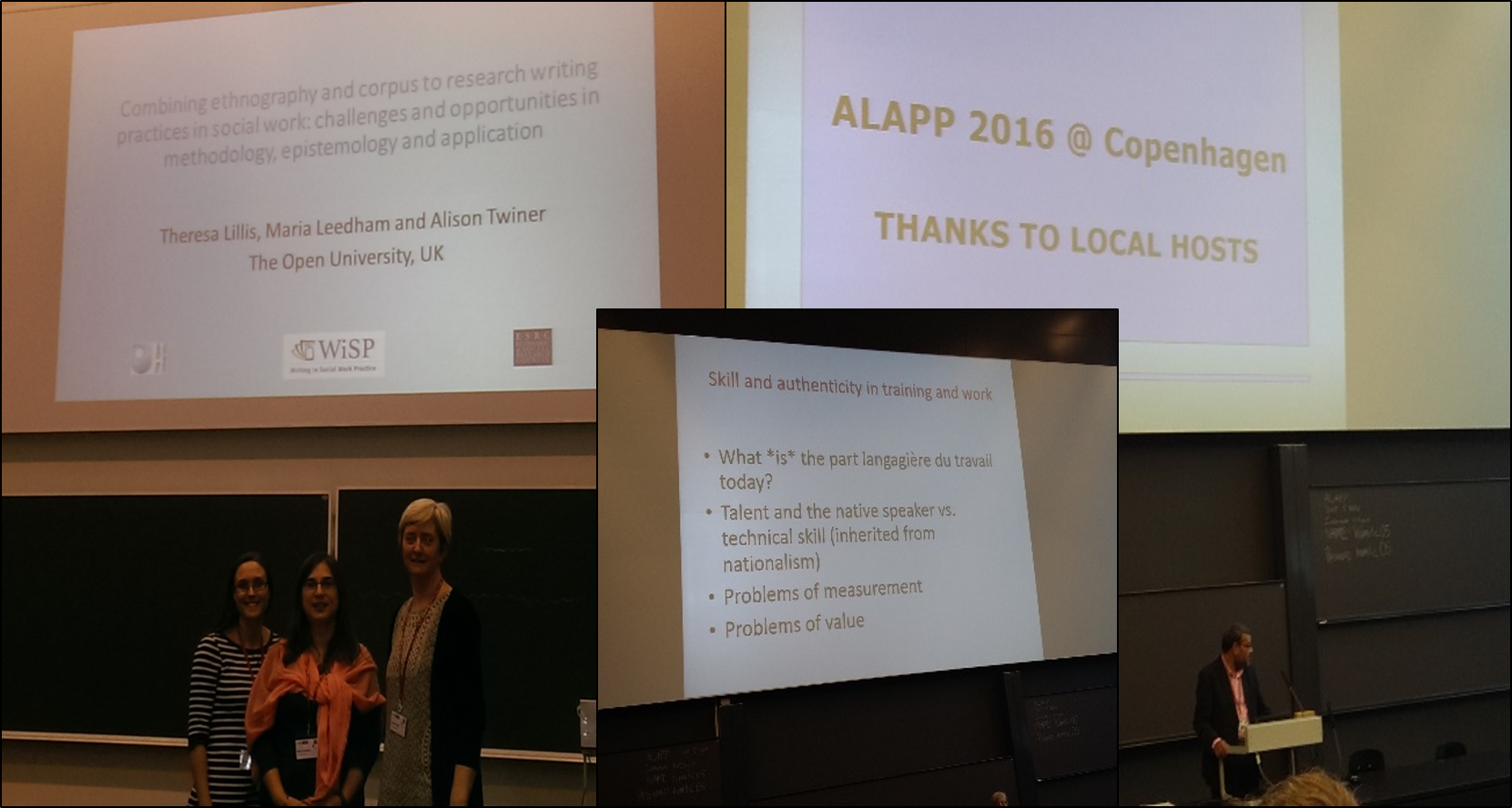We recently gave a presentation on the WiSP project at the ALAPP conference. The title of our presentation was
Combining ethnography and corpus to research writing practices in social work: challenges and opportunities in methodology, epistemology and application
which – as the title indicates – focused on methodological issues, in particular the extent to which ethnography and corpus linguistics are potentially compatible. One key difference between these approaches is the attention to specific contextualised detail or cases, in ethnography, as compared with the search for statistically significant patterns, in corpus linguistics.
We had some interesting questions and responses with views varying – and some people challenging whether it makes sense at all to combine these approaches. We think (at the moment anyway, our ideas may change) that it’s a question of level….We see Ethnography (with a capital E) as our overarching research approach or epistemology for understanding writing and recording in social work, with ethnography (small letter and meaning a range of methods, such as interviews, observations, texts) and corpus linguistics as tools or methods. As methods, we think they’re potentially not incompatible…
The conference – founding organiser Srikant Sarangi (image on far right) – brought together people interested in language (spoken, written, multimodal, involving a range of technologies, monolingual, bilingual, translingual…) and a whole range of professions – policing, health, journalism, translating and interpreting.
Monica Heller was one of the plenary speakers exploring professional communication and training in multilingual contexts. Whilst the context of her talk differed from ours, the questions she raised were definitely relevant (see central image) …and gave us plenty of food for thought about what role language plays (la part langagiere) in all types of professions and work…
– http://alapp2016.ku.dk/
November 2-5 2016, Copenhagen

Comments
No comment